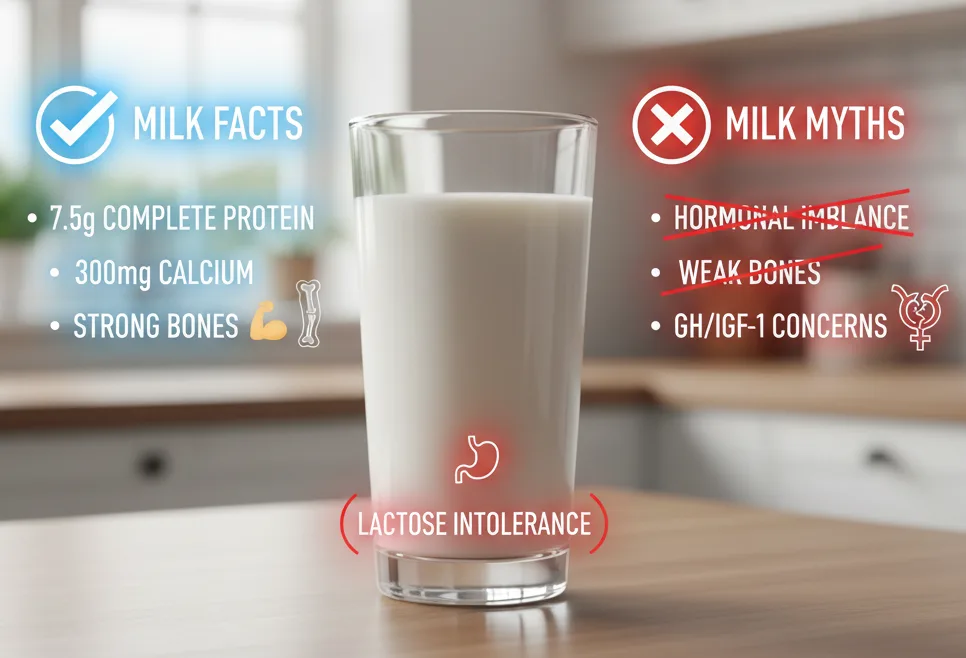You've probably heard conflicting messages about milk: one day it's a nutritional powerhouse, the next it's a hormonal hazard. The claim that milk could disrupt your hormonal balance or harm your bones is a common one, but let's look at what the research actually says.
Hormones in Milk: What's the Real Story?
Milk does contain trace amounts of hormones, but the concerns about them impacting human health are largely unsubstantiated.
Growth Hormone (GH): Any GH present in milk is reduced to almost zero during the pasteurization and processing stages. Furthermore, the small amount that remains has no biological activity in the human body. As a protein, it would be broken down during digestion just like any other food protein.
IGF-1: The concentration of insulin-like growth factor 1 (IGF-1) in milk is negligible, and it's also not biologically active in humans after consumption. Interestingly, the amount of IGF-1 in cow's milk is comparable to that found in human breast milk, and the amount naturally circulating in a human's blood is over 100 times greater than what you'd get from a glass of milk.
Estrogen: Milk contains very low levels of estrogen. Once consumed, this small amount is effectively broken down and deactivated by the liver, meaning it doesn't pose a risk to hormonal balance.
The Real Nutritional Benefits of Milk
Rather than causing problems, milk offers significant nutritional advantages for many people.
Protein: A single glass of milk provides about 7.5 grams of complete protein. Complete proteins contain all the essential amino acids your body needs to build and repair tissues.
Calcium: Milk is an excellent source of calcium, with one glass containing approximately 300 milligrams. Calcium is essential for building and maintaining strong bones, helping to protect against conditions like osteoporosis.
The Real "Problem" with Milk
For most people, the only real issue with milk is lactose. Many individuals have a lactose intolerance, an inability to properly digest this sugar due to a lack of the lactase enzyme. This can lead to digestive issues like bloating and discomfort, but it has no connection to hormonal or bone health problems.

